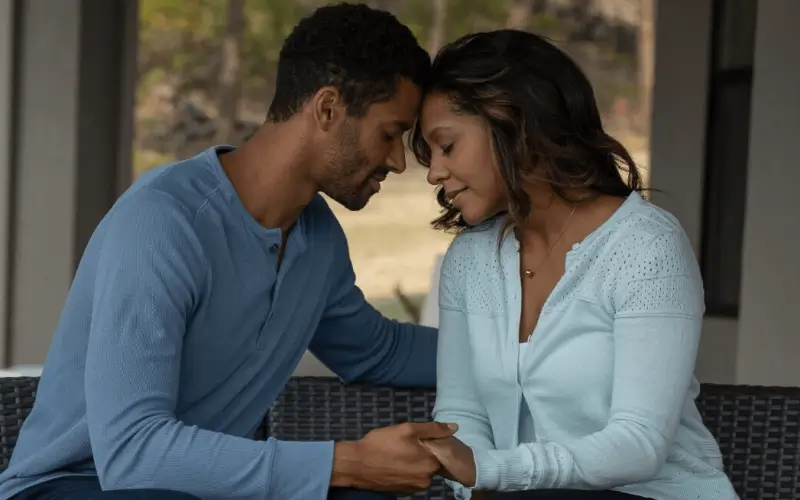Most of us in second marriages can clearly see that adding education, personal awareness and intentionality to our current marriage can create a new, mutually satisfying relationship.
As a remarried woman and a counselor, I often hear people say, “If I had only known ______ in the past, maybe I could have saved the marriage.” They think,
Maybe I should have been more emotionally vulnerable with my first wife; I need to learn to open up more.
Maybe I was too critical of my first husband; I wish I knew how to show more appreciation to my second husband.
Looking back with honest self-awareness can help us make better choices in our present relationships. Increasing our own emotional IQ will improve how we contribute to our second marriage.
Here are some tips that might help improve your relationship:
Know yourselves
Learn more about yourself and your mate by understanding how you are specifically wired. Resources such as Gary Chapman’s The 5 Love Languages, Gallup’s StrengthsFinder 2.0 and the Myers-Briggs Type Indicator personality test are helpful resources to understand how you’re uniquely created. Most times spouses find they’re different from the one they love and married.
The long-term enjoyment of marriage can be greatly enhanced by better understanding yourself and your mate. Let’s look at a common, and probably familiar, example. Extroverts love to meet new people and go to social events; this rejuvenates them. Introverts aren’t as willing to attend social events with strangers; however, some are able to do so but then are completely depleted and need time alone to recharge. Discovering these differences can drastically help an extrovert understand why his or her mate needs alone time or deciding that person is no fun. Understanding how each spouse is wired can help a couple develop realistic expectations for spending time in public — being compassionate and supportive is as important as being aware of your mate’s uniqueness.
Focus on active listening
While having a discussion, most spouses don’t naturally slow down, summarize and repeat the information their mate just communicated. Many times spouses jump to an assumed conclusion and fire back a response before even clarifying what their mate was expressing. Try being intentional about asking, “What I heard you say is ______. Was that what you were trying to express?” This gives both parties a chance to be heard correctly and adjust their words to be certain the message is received accurately. Active listening is a powerful gift to give a spouse.
Commit to dating
Planning and protecting “couple time” is critical to staying connected. Dating helps establish stability in the couple’s relationship instead of having all of life’s schedule revolving around the kids. A weekend away, an evening each month or even a weekend at home (with kids at the grandparents’ house) can help build emotional intimacy and create opportunities to be vulnerable with each other. Maybe you never planned any surprises in the past. Pursuing your mate with a surprise getaway could be a wonderful gift for you both.
Set healthy boundaries with friends
Sometimes people turn to friends or co-workers when the stress at home starts to boil. Being very careful and intentional about who we talk to about marriage issues can drastically affect our perspective. Never turn to a friend of the opposite sex for advice about your mate; his or her ability to influence your emotions can be dangerous to the integrity of your marriage. If boundaries were unclear in your first marriage, be intentional to keep them clear and consistent in this marriage.
Embrace counseling
Maybe you have never been to couples counseling and see it as something for “those people” instead of for you and your new spouse. Investing in preventative counseling can help spouses deepen their connection before even getting into a crisis. Just like taking preventative measures to protect cars, homes and physical health, investing in preventative care for the marriage relationship can have long-lasting benefits in communication and conflict resolution. Talking about relationship roles and expectations can bring incredible clarity to the journey of creating and cultivating a strong family. Don’t wait until you are in crisis to benefit from relationship education and insight. Working with a counselor to help address areas that are out of balance can set you up for a solid marriage with a clear plan.
In the past we may have thought, Love is all we need. Most of us in second marriages can clearly understand that adding relationship education, personal awareness and intentionality to our current marriage can get us new and exciting results that create a mutually satisfying marriage.
Based on research and experience from Dr. Greg and Erin Smalley, Focus on the Family has created valid and reliable questions that evaluate the strength of your marriage. Take our free assessment now.
© 2018 Tammy Daughtry. Originally published on FocusOnTheFamily.com.


















 0800 200 362
0800 200 362 support@family.org.nz
support@family.org.nz Rangiora, 7400, New Zealand
Rangiora, 7400, New Zealand